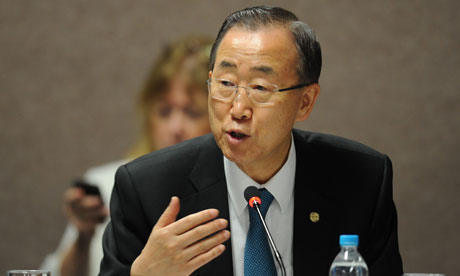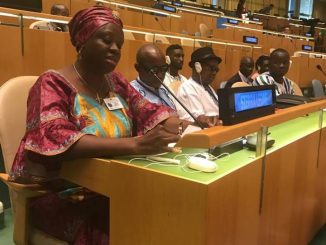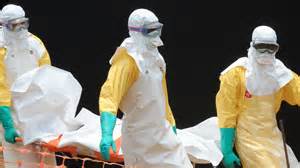
Secretary-General Ban Ki-moon last Friday vowed to mobilize the United Nations in every possible way to respond to the Ebola outbreak in West Africa and issued an “international rescue call” for a massive surge in assistance, warning that “the world can no longer afford to short-change global public health.”
“The next few weeks will be crucial. The people of Guinea, Liberia and Sierra Leone in particular are looking to us for support. They are counting on us for a massive surge in assistance: more doctors, nurses and beds; more equipment, trucks and other vehicles,” the Secretary-General said at UN Headquarters.
The World Health Organization (WHO) announced today that experts taking part in a two-day discussion on potential Ebola therapies and vaccines identified several therapeutic and vaccine interventions that should be the focus of priority clinical evaluation at this time, including two “promising” Ebola vaccines.
WHO Assistant Director-General Marie-Paule Kieny told a press conference in Geneva on the outcome of the experts meeting that it was not yet known if the therapies are 100 per cent safe or whether they will be effective. He added that their safety will be known in November 2014 and will be available for use in countries shortly after.
Dr. Kieny also noted that blood from Ebola survivors might help those who are still infected and still sick to fight the virus.
“We have agreed that whole blood therapies and convalescent serums may be used to treat Ebola virus disease,” Dr. Kieny told reporters.
“This can be done in Ebola-affected countries now,” WHO tweeted, citing Dr. Kieny.
In a WHO statement on the meeting outcome, “The participants cautioned that investigation of these interventions should not detract attention from the implementation of effective clinical care, rigorous infection prevention and control, careful contact tracing and follow-up, effective risk communication, and social mobilization, all of which are crucial for ending these outbreaks.”
At UN Headquarters, the Secretary-General warned that “the world can no longer afford to short-change global public health.”
He urged the international community to contribute to the WHO Roadmap and to provide the $600 million needed for supplies in West Africa in order to stop Ebola transmission in affected countries within six to nine months, and to prevent the international spread of the virus.
Mr. Ban was flanked by Dr. Margaret Chan, WHO Director-General, and Dr. David Nabarro, the Senior UN System Coordinator for Ebola, who are spearheading the UN response.
“We are mobilizing in every possible way,” Mr. Ban said after convening senior leaders and experts from across the UN system on next steps in managing the epidemic. “We are together today to send out an international rescue call.”
He also said that there needs to be better awareness and understanding about the outbreak, and also urged airlines and shipping companies not to cancel flights and docking to the affected countries, adding that such restrictions will only keep medical teams from reaching people most in need.
Also today, a cargo plane carrying medical supplies from the UN Children’s Fund (UNICEF) has landed in Sierra Leone. The 48 metric tons of supplies include protective equipment and essential medicine. UNICEF has delivered more than 400 metric tons of aid since early August.
The agency says that more emergency airlifts are expected to continue while a steady pipeline is being established to bring supplies into affected countries by sea as well.
WHO, in its latest report issued Friday afternoon, said the total number of Ebola cases now stood at 3,944 and deaths at 2,079 in Guinea, Liberia and Sierra Leone, countries identified as “those with widespread and intense transmission.” The fatality rate is 53 per cent. It ranges from 39 per cent in Sierra Leone to 64 per cent in Guinea.
In countries “with an initial case or cases, or with localized transmission,” WHO said there have been 22 cases and 8 deaths in Nigeria, and one case has been confirmed in Senegal.
UN NEWS SERVICES




Leave a Reply